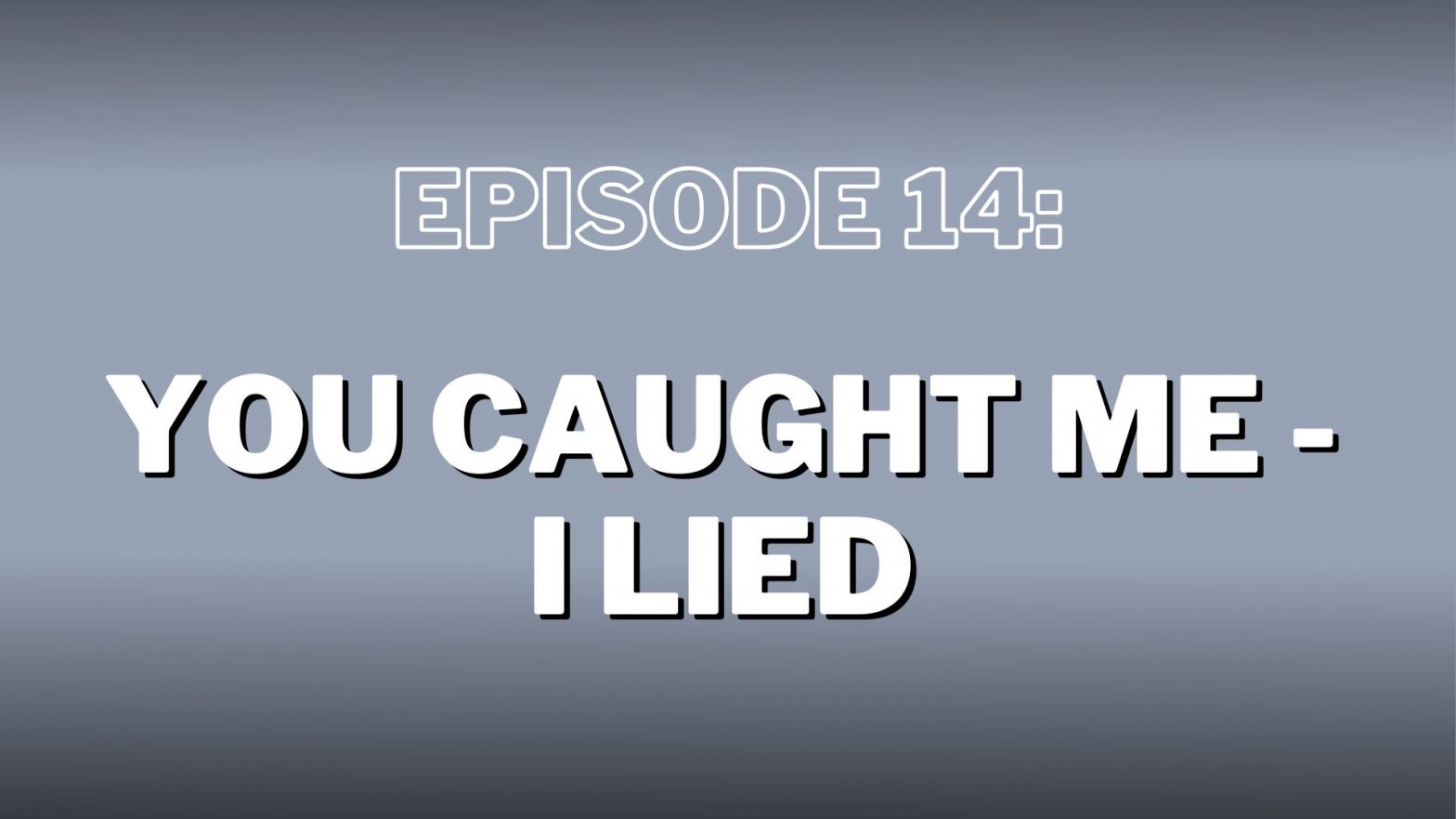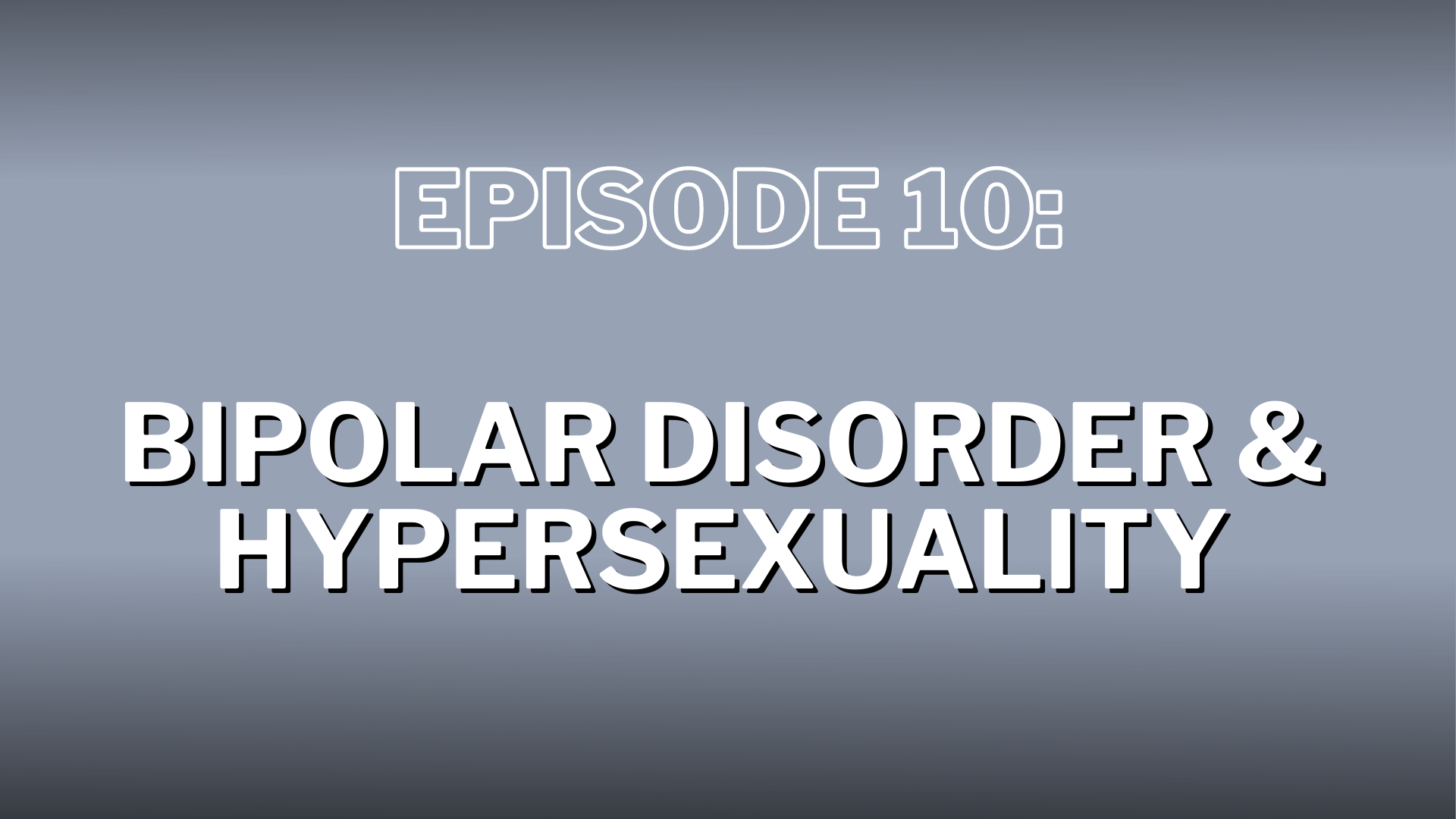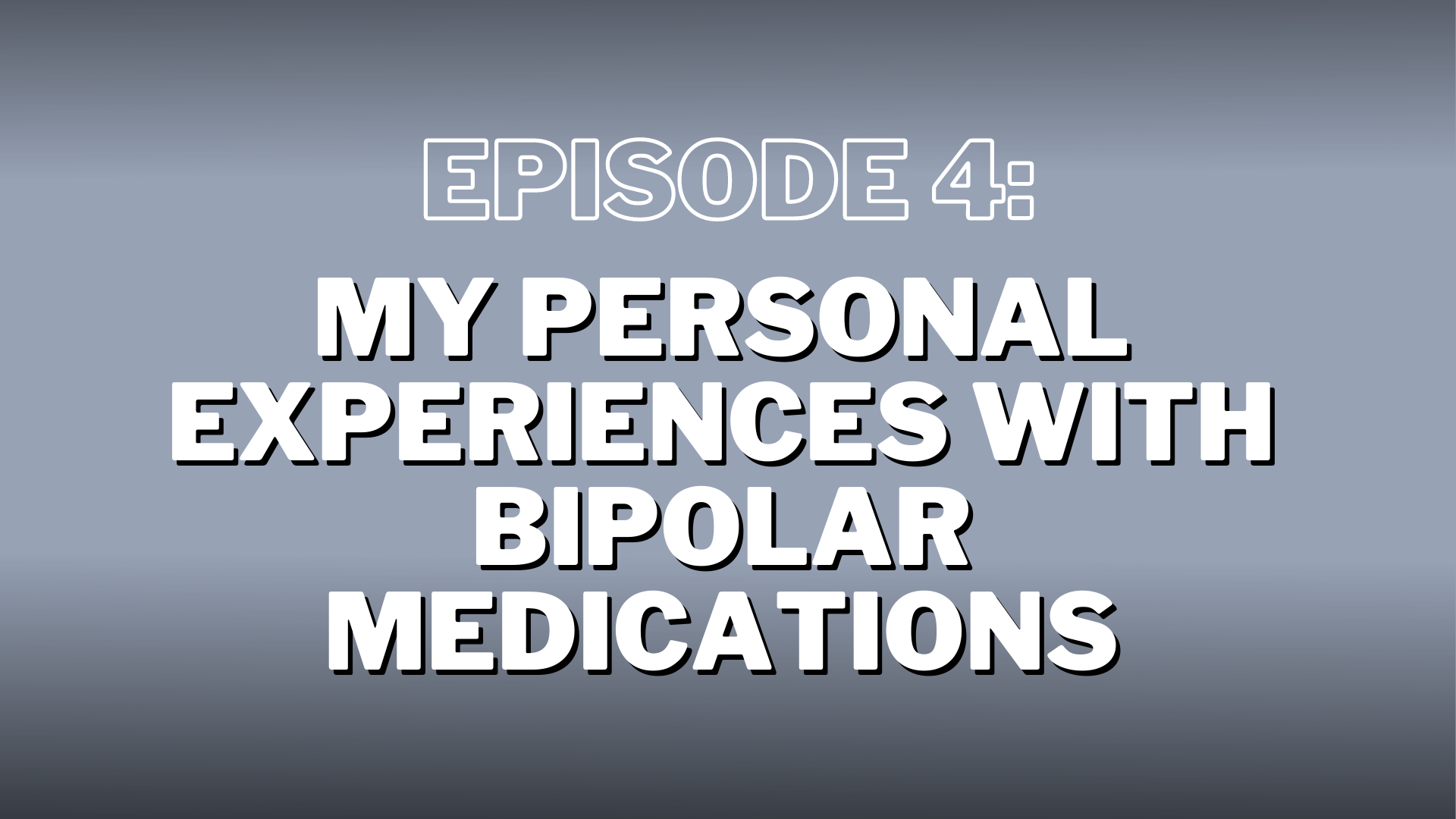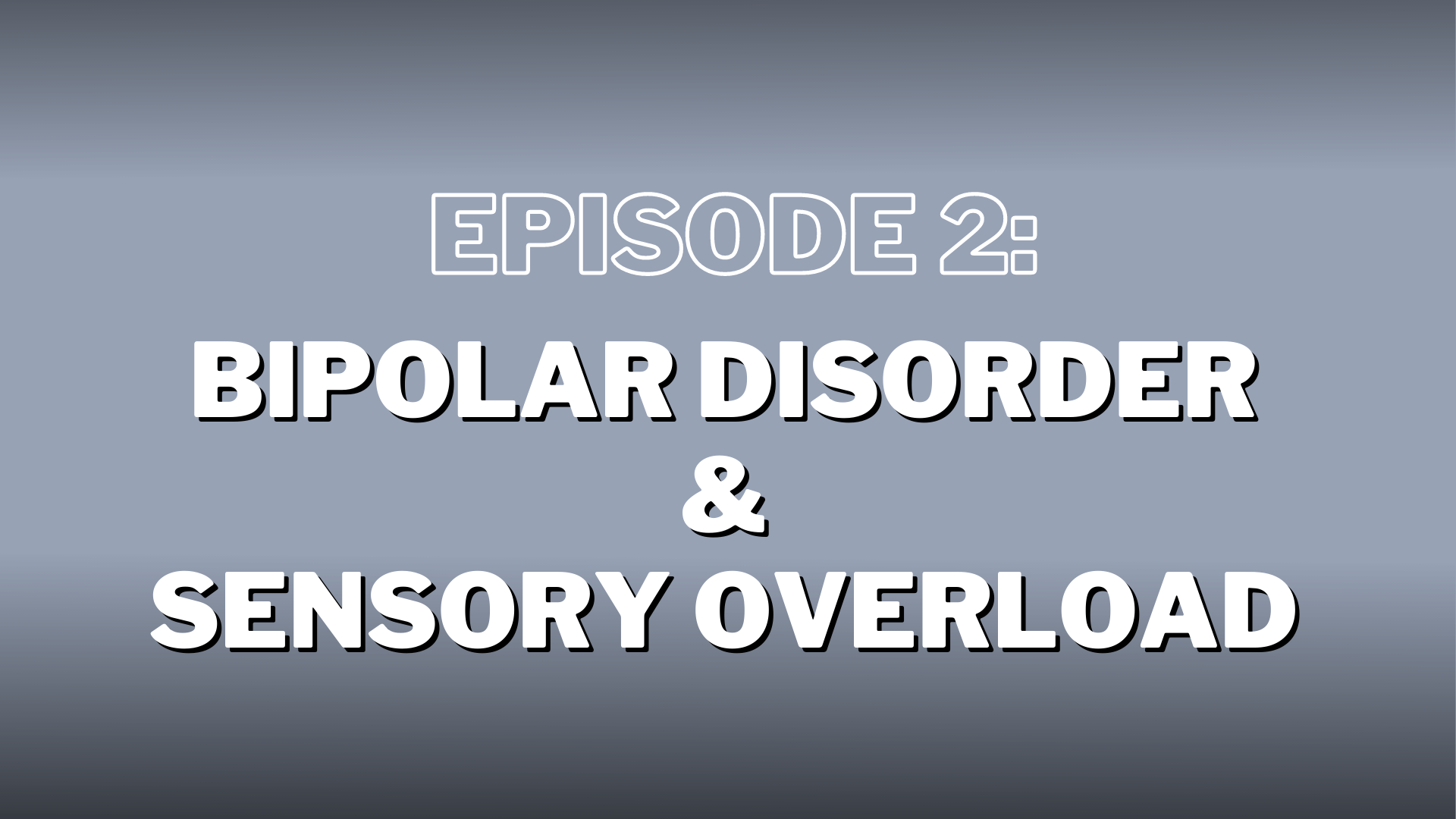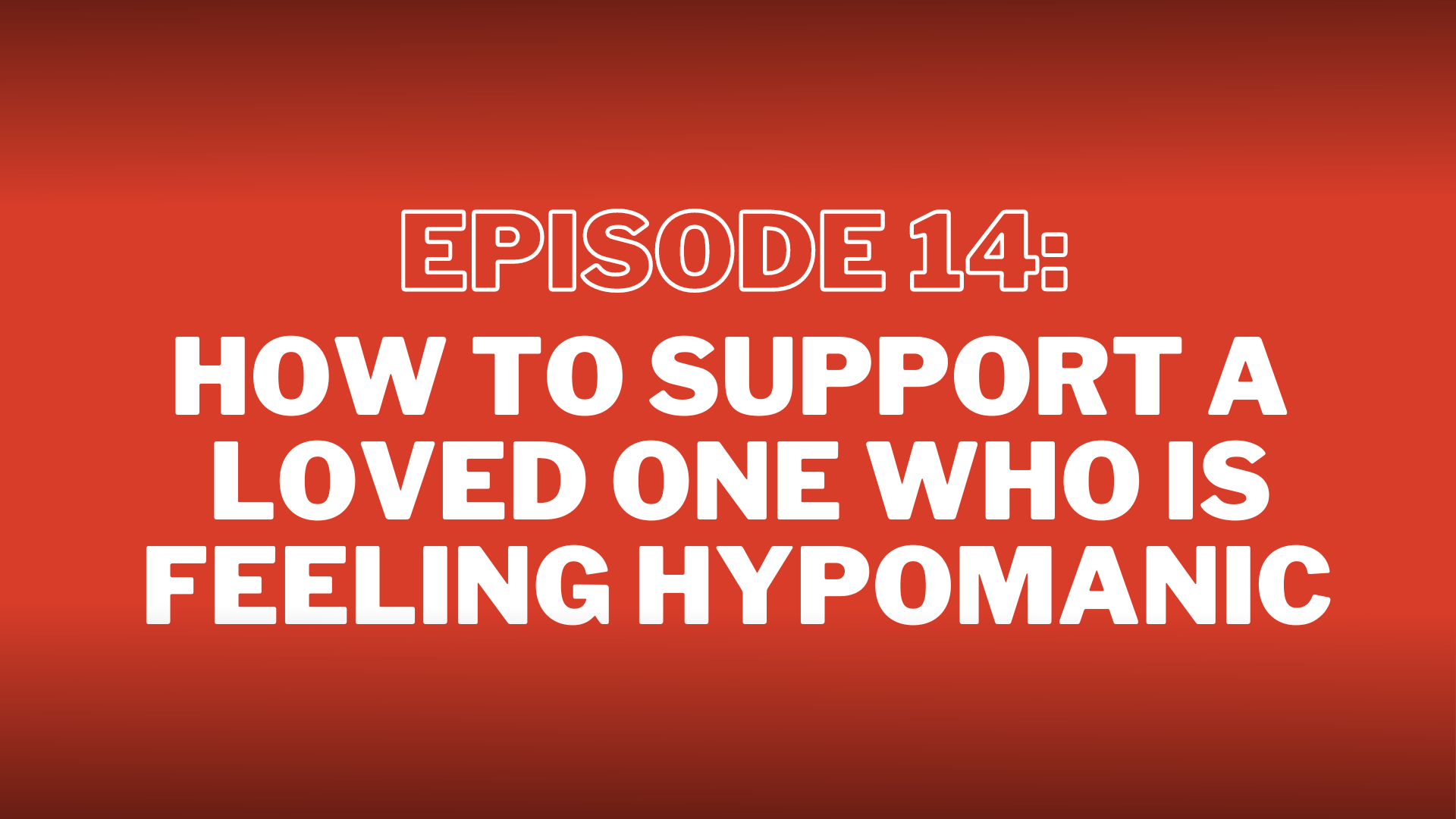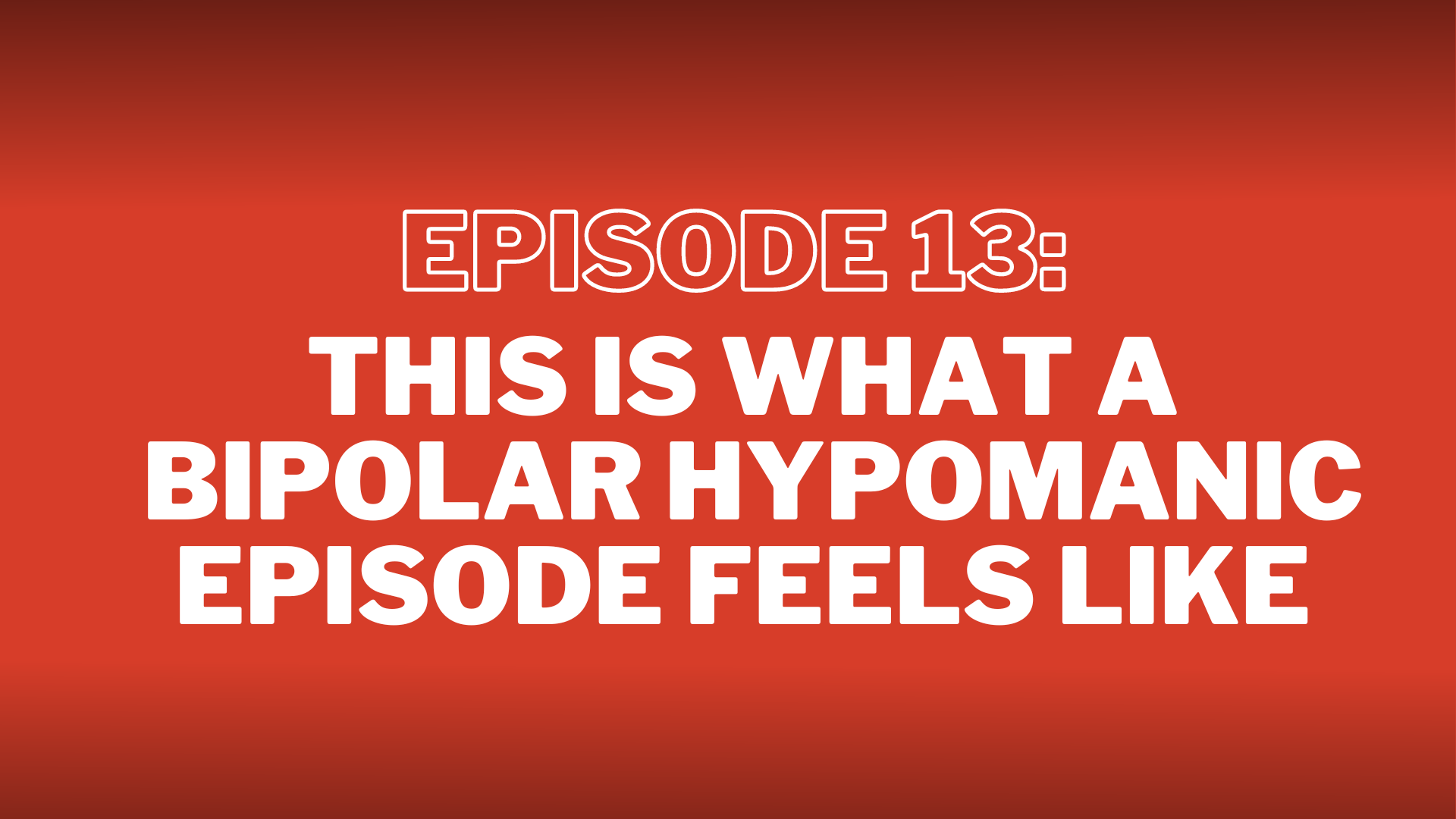Also found on Spotify, Apple Podcasts, Stitcher, Audible, Google Podcasts, and YouTube. Tune in as I recount a conversation that I had with someone I know who also has bipolar disorder and the epiphany that came from it. This important conversation made me realize that I’m not the only person who has lied to a psychiatrist or therapistContinue reading “S4. Episode 14: You Caught Me – I Lied – Show Notes”
Tag Archives: bipolar podcast
S4. Episode 10: Bipolar Disorder & Hypersexuality – Show Notes
In this episode, Bailey discusses the research she’s found on the connection between Bipolar Disorder and Hypersexuality. You’ll learn more about what hypersexuality actually is and how it can impact the lives of those with bipolar disorder. Additionally, Bailey takes the time to talk about her own personal experiences with hypersexuality and how it affected her life. She hopes that by tuning in, you’ll be able to better understand this often-overlooked side of bipolar disorder, you’ll hear stories that resonate with you or you’ll leave this episode with a kinder, more compassionate heart. (OR – all three!)
Episode 4: A “Bipolar Girl” in a Lonely High School World – Show Notes
What was it like to be a high school kid who has just been diagnosed with bipolar disorder back in 2010? Bailey discusses her experience telling her friends and her boyfriend at the time about her recent diagnosis and how things seemed to suddenly change for her. Learn better ways to approach opening up to your friends and loved ones about your struggles so that you can skip the heartache and pain that Bailey dealt with. Plus, discover alternative reactions to consider using if a friend or loved one opens up to you about their struggles.
Episode 2. Bipolar Disorder… What exactly is that? – Show Notes
I’ve heard of bipolar disorder, but what exactly is it? And how does it affect people? Join host, Bailey Reber, as she breaks down the details of bipolar disorder while encouraging those who are considering seeking help to do so. Learn what type of bipolar disorder Bailey was diagnosed with and options for success when choosing a psychiatrist for the first time.
S4. Episode 4: My Personal Experiences with Bipolar Medications – Show Notes
In this episode, Bailey discusses how her bipolar medications have affected her over the years. **Disclaimer: Bailey is not a medical professional nor is this episode intended to promote any medications.** This episode is here as a way to share personal experiences and to hopefully help others, especially those struggling to find a medication that works for them, feel less alone.
S4. Episode 2: Bipolar Disorder & Sensory Overload – Show Notes
In this episode, Bailey discusses the connection between bipolar disorder and sensory overload (also known as hypersensitivity). She takes time to discuss research that she’s done on this topic and how it relates to personal life experiences that she’s undergone. Sensory overload affects many different types of people with mental diagnoses, more than just those with bipolar disorder. Bailey hopes that you’ll leave this episode with a better understanding and more empathy for those in the world around you.
S3. Episode 14: How to Support a Loved One Who is Feeling Hypomanic – Show Notes
Tune in as host, Bailey Reber, explains to you what has been helpful for her when a loved one is trying to support her during a bipolar 2 hypomanic episode. Besides real-life stories, she also includes information found from trusted articles to help you better understand what you can do to support a loved one who is also diagnosed with bipolar 2 disorder.
S3. Episode 13: This is What a Bipolar Hypomanic Episode Feels Like – Show Notes
In this episode, I discuss what it feels like in the midst of a bipolar 2 hypomanic episode. These hypomanic episodes are generally very specific to bipolar 2 disorder and therefore can be very confusing to those without this diagnosis. I truly hope to help those listening who have bipolar 2 disorder to feel less alone while tuning in. At the same time, I hope to leave those of you who do NOT have bipolar disorder feeling full of new information and insight on what their friends/loved ones may be going through.
S3. Episode 5: I am NOT Bipolar; I Have Bipolar Disorder – Show Notes
Tune in as host, Bailey, discusses the importance of not labeling yourself or others, but instead use People First Language when discussing your own or someone else’s mental health status. She hopes that you not only take away valuable information from this podcast episode, but that you’ll also be inspired to break away from any labels that you or someone else has placed upon you.
S3. Episode 3: The Changing of the Seasons – Show Notes
Tune into this episode of Distressed to Joyful; Bailey’s Way podcast to learn more about the significance of each color of season. You’ll also learn helpful information about depression and how you can help/get the help you need.

